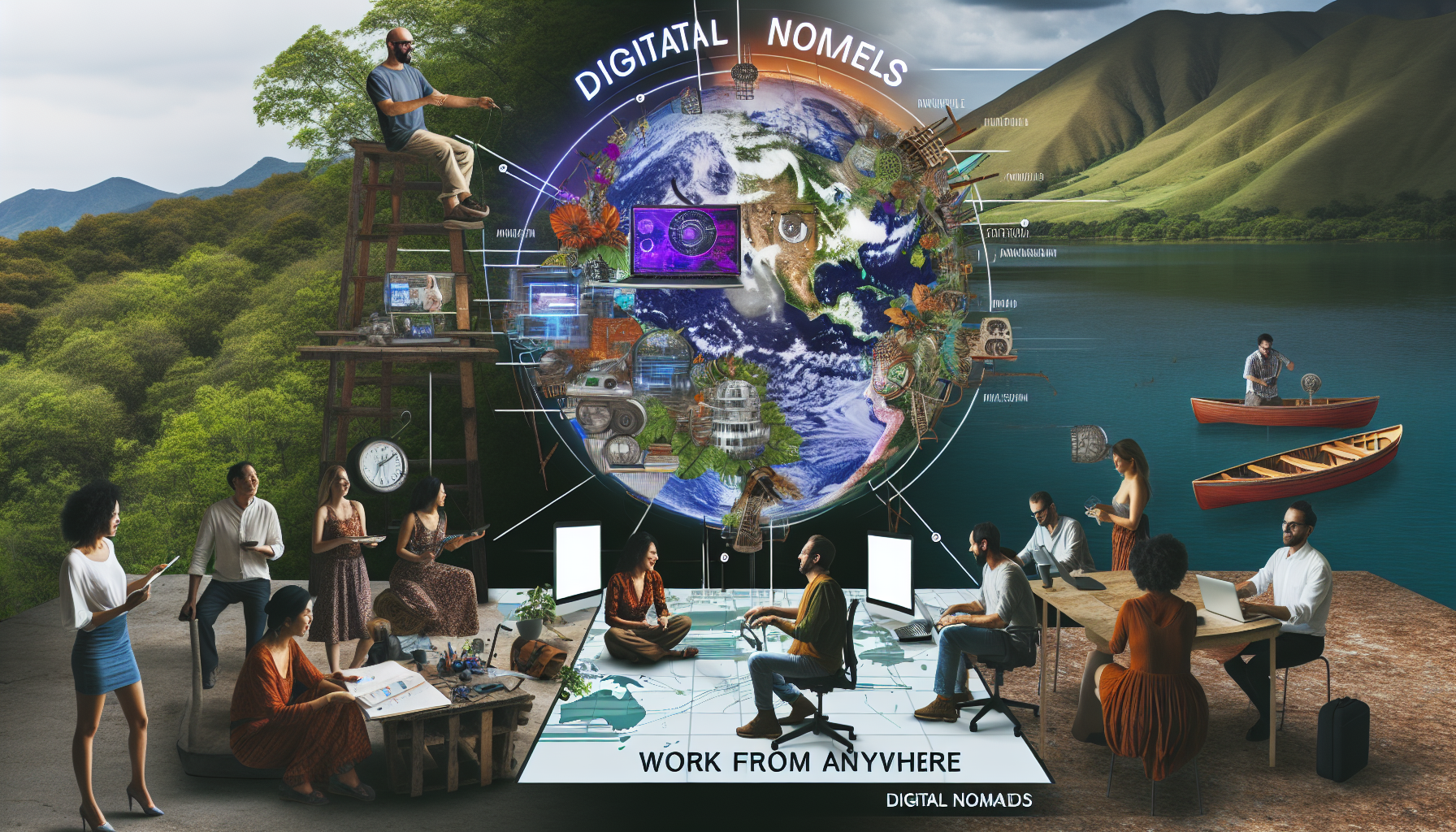How Digital Nomads Built Remote Empires from Scratch
Imagine waking up in a beachside bungalow in Bali, working from a chic café in Paris, or sealing deals from the peaks of the Swiss Alps. Welcome to the fascinating world of digital nomads, visionary individuals who have transformed remote work into a full-fledged lifestyle. Not confined by the traditional 9-5 office routine, they carve out empires while exploring the farthest corners of the globe. This blend of adventure and entrepreneurship is captivating in our increasingly digital world.
Key Takeaways
- Digital nomads leverage advanced technology to manage remote businesses.
- Essential skills include adaptability, technical proficiency, and communication.
- Networking in virtual and physical spaces plays a crucial role.
- Overcoming challenges such as time-zone differences and legal constraints is vital.
- Tools and platforms designed for remote work boost efficiency.
The Power of Technology
One cannot speak of digital nomads without acknowledging the pivotal role of technology. Advanced gadgets, cloud-based software, and high-speed internet have dissolved geographical boundaries. With collaboration tools like Slack, Trello, and Zoom, digital nomads come together, irrespective of location, to build successful ventures.
“The digital age has made it possible for anyone to work from anywhere and create value without borders.” – Tim Ferriss.
Essential Skills for Building Remote Empires
Adaptability: Digital nomads must quickly adapt to changing environments. From learning new cultures to grappling with unstable internet connections, adaptability is a core skill.
Technical Proficiency: A firm grasp of various software applications and online tools is non-negotiable. Understanding SEO, social media management, and web development often gives digital nomads an edge.
Effective Communication: Whether coordinating with global teams or negotiating with clients, clear and concise communication is imperative. Tools like Asana and Basecamp help keep projects on track.
Networking: Online and On the Road
Building a remote empire isn’t done in isolation. Digital nomads master the art of networking both online and in-person. They attend virtual meetups, join collaborative forums, and leverage LinkedIn to build professional relationships.
“Your network is your net worth.” – Porter Gale.
Overcoming Challenges: Time Zones and Legalities
Managing a global team brings challenges like time-zone coordination. Tools like World Time Buddy help schedule meetings across different time zones. Additionally, understanding international business laws and regulations can prevent potential legal pitfalls.
| Challenge | Solution | Tools/Platforms |
|---|---|---|
| Time-Zone Differences | Schedule Adjustments | World Time Buddy |
| Legal Constraints | Consult Local Experts | Expat Legal Services |
| Cultural Sensitivity | Cultural Training Programs | Culture Wizard |
| Connectivity Issues | Use Co-Working Spaces | WeWork, Regus |
Practical Tips for Aspiring Digital Nomads
For those dreaming of the digital nomad lifestyle, start small. Perhaps try remote work domestically before going international. Invest in reliable tech gear and familiarize yourself with the best remote work tools. Build a savings buffer to cushion against the initial uncertainties.
Co-working spaces can foster productivity and provide networking opportunities. Websites like Nomad List offer insights into the best places for digital nomads, including cost of living and internet quality.
Embark on Your Digital Nomad Journey
Building a remote empire is both a thrilling and challenging endeavor. By harnessing technology, honing essential skills, and navigating networking and logistical challenges, digital nomads create dynamic and vibrant lifestyles. Explore further by reading books like “The 4-Hour Work Week” by Tim Ferriss or joining communities such as Remote Year.
FAQ
What is a digital nomad?
A digital nomad is someone who leverages technology to work remotely while traveling and living in various locations globally.
How do digital nomads sustain their lifestyle?
They often engage in freelance work, run remote businesses, or work as remote employees. Multiple income streams and financial planning are key.
What are the potential challenges for digital nomads?
Common challenges include coordinating across time zones, staying connected in remote areas, and managing legal and tax obligations in different countries.
